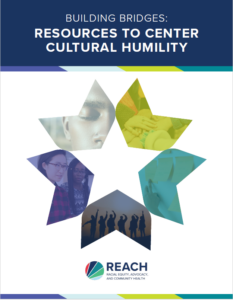About
The REACH (Racial Equity, Advocacy, and Community Health) Alliance at Rutgers University Center of Alcohol & Substance Use Studies (CAS) is a diverse group of researchers, students, community members, mental health service providers, and individuals with lived experiences who are dedicated to understanding and addressing health disparities caused by systemic racism. The REACH Alliance focuses its research on the many psychological, social, cultural, environmental, and policy-level influences on health outcomes, guided by the Social Ecological Model.
Much of the research on health outcomes has focused on individual factors, overlooking the many broader influences on health. An individual focus on health disparities for marginalized groups only serves to deepen stigma and racism, without accounting for the myriad ways that systems contribute to discrimination and oppression for communities of color.
The REACH Alliance is committed to improving racial health equity by working at multiple levels of the Social Ecological Model, over and above the individual. We are interested in understanding how personal relationships, organizational resources, community cultures, and community identities influence health and wellness. Our research falls into three main areas:
- Improving health and well-being for people in diverse and minoritized communities, particularly related to the mental health conditions that impact them most.
- Understanding and addressing social determinants of health that contribute to, or maintain, those disparities.
- Improving access to effective treatments for mental health conditions, so that all people can benefit from treatment that recognizes and values their identities and experiences.
Throughout our work, we emphasize community-based participatory research by meaningfully engaging partners from communities of interest to actively contribute to all aspects of the work being conducted. Our primary goal is to find innovative, community-led methods to break down barriers to health equity for minoritized, underserved, and historically oppressed populations. Current projects focus on trauma, substance use, mental health service utilization, and promotion of culturally sensitive treatment.
Active Research Projects
Mental Health Beliefs and Current Needs among Young Black Women
The goal of this study is to build on our previous research, guided by the Theory of Planned Behavior, to advance understanding of the attitudes, norms, and beliefs related to seeking out mental health care among young Black women who have experienced trauma, such as interpersonal violence or sudden/unexpected loss of a loved one. Experiences like this greatly increase the risk for mental health concerns–including PTSD, depression, and problematic substance use. However, young Black men and women are less likely to receive mental health care when needed compared to white young adults, due to complex cultural, historical, and systemic barriers. By engaging directly with communities of young Black women, we hope to understand 1) how we can address these barriers using innovative, community-led strategies and 2) current needs for managing mental health, given the psychological and emotional distress caused by ongoing COVID-19 pandemic. This mixed methods study will inform development of a culturally tailored intervention to promote mental health care among young Black adults who have experienced trauma.
Developing a Cultural Humility Toolkit for Mental Health Service Providers
This toolkit is a resource for mental health service providers who are interested in more effectively engaging with a diverse community of people served. The contents of the toolkit include a comprehensive set of handouts, video and recording links, recommended readings, and other resources that providers can use for training, learning, and professional development opportunities.
___________________________________
Diverse populations, particularly people of color, are less likely to receive high-quality mental health care, in part due to racism and discrimination from providers. Cultural humility can be considered a sense of self-awareness of one’s own background, and a commitment to learning about and valuing others’ respective cultural backgrounds, values, and identities. Cultural humility has long been discussed in the mental health field, but questions remain on how to begin this process of self-reflection, let alone building cultural humility into one’s clinical practice. This project, funded by a Rutgers IDEA Innovation Grant Award, aims to develop a resource toolkit to promote cultural humility among mental health service providers (e.g., psychiatrists, psychologists, counselors, social workers), focused on building practical skills for developing cultural humility and enhancing providers’ ability to work flexibly with diverse populations and intersectional identities. We hope to continue this work by refining and disseminating the toolkit among providers, while identifying additional barriers to culturally sensitive practice.
For more information on the REACH Alliance, including past projects and publications, please visit: https://reach-alliance.weebly.com/
Personnel
Core Faculty:
Alexandria Bauer, Ph.D.
Students:
Mengjia Ji, BA
Carolyn Bazan, MS
Ayanna Gilmore, MA
Jahnayah Bellot, BS
Ally Cameron, BA
Kaan Kideys, MA
Amudha Balaraman, MA
Collaborators:
Denise Hien, PhD
Lesia Ruglass, PhD
Peggy Swarbrick, PhD
Tanya Saraiya, PhD
Delisa Brown, PhD
Sumedha Therthani, PhD
Sherrikah Thigpen-Hayes
Vinaiya Fryar
Cindy Forestal
Oluwakemi Dauda
CAS Community Advisory Board
First Baptist Church of Lincoln Gardens
The Urban Health Collaborative

